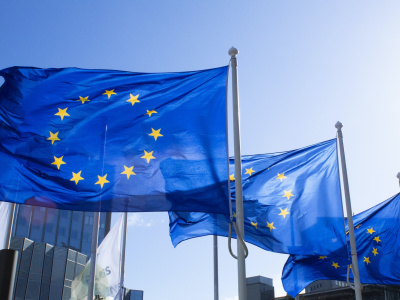The Cotonou agreement governs relations between the African, Caribbean and Pacific (ACP) group of states and the EU - and it will expire in 2020. It is a framework concerning political dialogue, development cooperation and trade, but thanks to the success of these three 'pillars' and a changing international landscape, the relationship has cause for some readjustment. In this video the new Secretary General of the Group underlines the self-reflection currently taking place within the ACP, as it looks for a different approach to Europe. A recent ECDPM/German Development institute paper has set out reasons to
do away with the ACP-EU partnership and elements worth preserving, with the 'ball in the ACP's corner' in terms of defining and determining their own future. The regions represented are very different, ex-colonial ties are decreasing in relevance and there has been a poor track record in shaping joint positions. Yet the legal framework favours dialogue, it has seen a strong performance from the European Development Fund and, it is a potential alliance for global public goods provision.
Either way, post-2020 'business as usual' is untenable, says the document. Mr Mumuni looks to reform of the relationship rather than a complete abandonment. New Secretary General of the ACP group answers these questions whilst attending ECDPM's Board of Directors meeting in April 2013. Read the transcript below. ECDPM:
http://www.ecdpm.org ACP:
http://www.acp.int/content/alhaji-muhammad-mumuni-profile Transcript:
My name is Alhaji Muhammad Mumuni, Secretary General of the ACP – African, Caribbean and Pacific group of states, based in Brussels. The ACP has this partnership with the EU, called the Cotonou agreement which was fashioned back in the year 2000 for a period of 20 years. It is reviewable every 5 years, so we are coming up to review in 2015 and the agreement is supposed to come to an end in 2020. What should happen beyond 2020 is what is pre-occupying both the ACP and the EU in their consultations: envisioning the future beyond that date. The ACP is also involved in a kind of reflection about its own position, its own relevance, its mandate, vision, mission in the future.
Can the ACP partnership be done away with? Is the relationship still relevant? My thoughts are that the relationship should not be abandoned all together. We should be able to reform it and evolve from the experiences we’ve had. We believe that it can not be continued in the way it has been. Clearly a lot of dynamics have changed in the world. The new political landscape is totally different, they perception of people, particularly the youth and voter population in the EU countries are totally different from what they were before. The real expectation is that we should be able to stand toe-to-toe as partners and negotiate at arm’s length and produce a kind relationship that is a win win for both ACP and Europe. In trying to do that, we have to build the capacity of the ACP. Make it vibrant and strong, and capable of negotiating and taking care of its own interests.
What are the next steps for the ACP group in preparation for post-2020 discussions? We need to re-invent the organisation, we need to make it relevant and strong to be able to prosecute the agendas. These are agendas for development for our member countries: eradicating poverty, promoting sustainable development and also building strong competitive economies to be able to integrate out countries into the globalised world system. Also achieve a fair and equitable world economic order.


